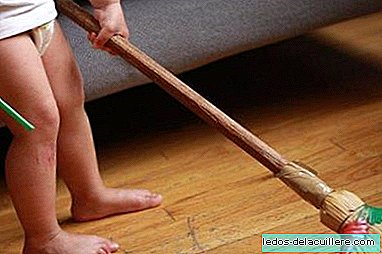
It is important to teach children since they are young that housework is shared by all family members.
Collaborating at home should be part of your normal daily routine, such as eating or brushing your teeth. By becoming a habit, it will be easier for them to gradually assume small responsibilities, always according to their age and abilities. We tell you how to make children help at home.
Responsibilities according to their age and abilities
It's not about overwhelming them with housework, but teaching them to cooperate in some tasks that they can assume, such as setting the table, putting dirty clothes in the basket or throwing waste in the bin. As they grow and learn to fend for themselves, the tasks will be modified.
It's fundamental set a moment for the child to perform the assigned task, such as setting the table before eating or picking up the toys before bathing.
You must show you first how to do the job, explaining it to you as it is done and letting the child finish it. Praise him often with phrases like "You're doing great," "you're setting the table phenomenal," etc.
What you must not do
If you make a mistake, do not scold or emphasize it. Instead, you must help him to do the job correctly. Next time he will do better.
It is not recommended that you do the tasks that have been entrusted to the child if he or she does not want to do them. Otherwise, it will not come to assimilate that they are your responsibility.
When they are young they love to participate in the tasks that adults do. Helping mom and dad is not a bore, but quite the opposite. But as they grow, they often begin to consider them unpleasant obligations.
In that case, it is not convenient to settle the matter with phrases such as "You do it because I say so", but explain the importance of all family members collaborating in housework, because they are everyone's business.
Let the children help at home It is part of family life. The fact of introducing them to household chores will help you achieve a higher level of autonomy, responsibility and maturity.












